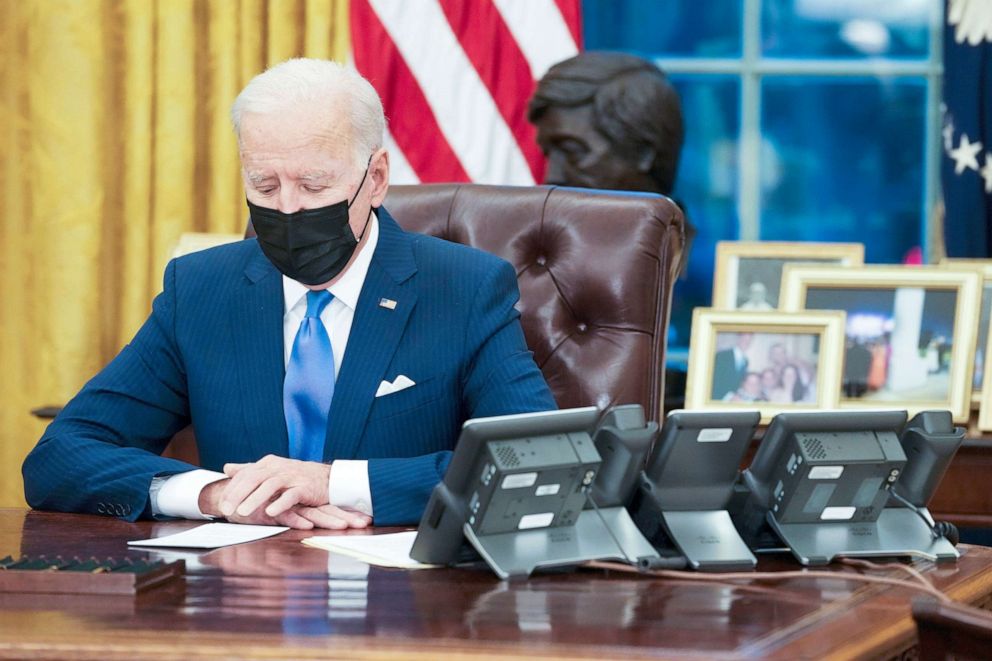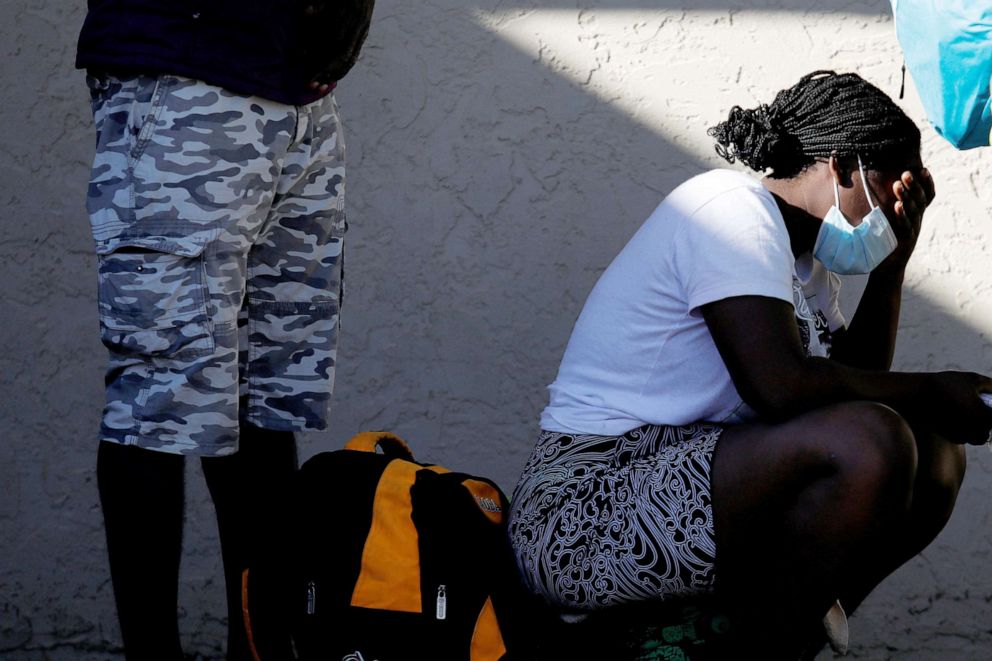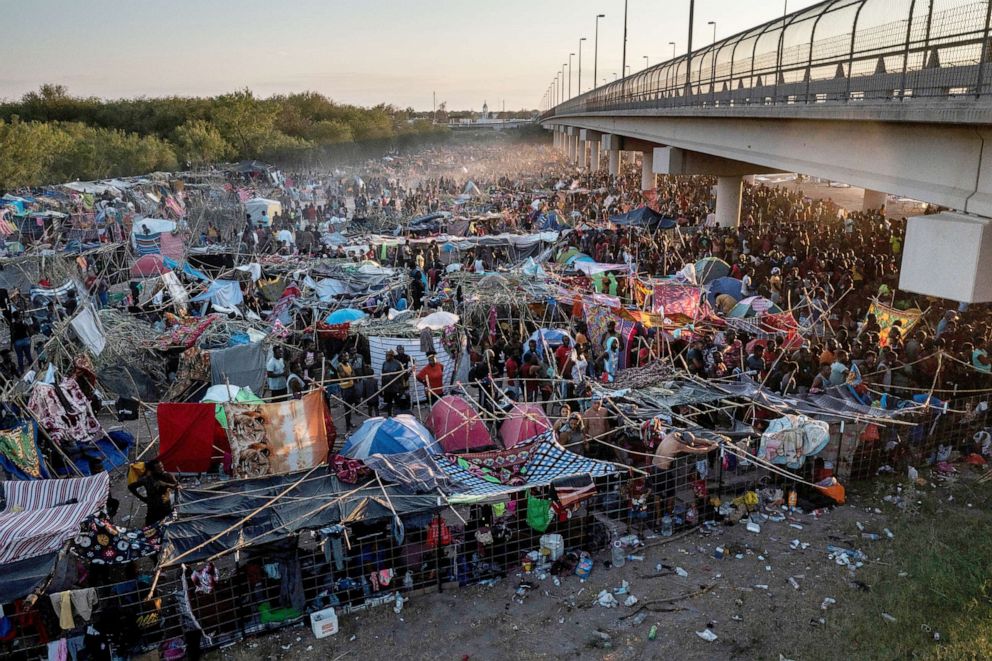What is Title 42 -- the Trump-era immigration order at the US-Mexico border?
Groups challenging the use of the order argue that it violates U.S. asylum law.
President Joe Biden has vowed to implement a more humane approach to immigration than his predecessor, but a Trump-era order to rapidly expel hundreds of thousands of migrants has sparked backlash from human rights advocates as well as a protracted legal battle that remains unresolved.
The order is known as Title 42, a reference to part of the U.S. public health code, and according to advocates challenging the administration in court, its use violates federal and international law.
The Title 42 process has allowed the U.S. to expel upward of two million migrants from the border including a surge of Haitian asylum seekers last year, Venezuelans who have been coming in larger numbers, and Mexicans, who make up the bulk unauthorized migrants in the Southwest.
Despite a chorus of criticism from advocates and Democratic lawmakers over the handling of the Haitian influx at the border in Del Rio, Texas last year, the administration continued defending the use of Title 42 in court.

What is Title 42?
Title 42 is a clause of the 1944 Public Health Services Law that "allows the government to prevent the introduction of individuals during certain public health emergencies," said Olga Byrne, the immigration director at the International Rescue Committee.
Rarely used over the past few decades, the Trump administration relied on an interpretation of Title 42 to issue a public health order during the COVID-19 pandemic that authorized the rapid expulsion of migrants, citing concerns over the spread of the virus, without giving them a chance to apply for asylum, Byrne said.
Under federal law, any non-citizen within the United States can make a claim for asylum.

"The legal issue at hand [with the use of Title 42] is that there's nothing in the law that allows the government to expel [migrants] without any due process," Byrne said.
Migrants have been expelled from the border more than 2.4 million times since the Title 42 order was implemented, according to U.S. Customs and Border Protection data.
Who is being removed under Title 42?
Hundreds of migrants have surged into El Paso and the area continues to see an elevated level of incoming migration. Border Patrol is apprehending migrants more than 2,200 times a day, according to a CBP official. Many will likely be removed under Title 42 while others will undergo standard immigration processing which allows for more time to make humanitarian claims.
The Department of Homeland Security has also established an agreement with Mexico to accept – through Title 42 -- all Venezuelan nationals who cross the border illegally. While Title 42 can be applied to any nationality, it also requires that a foreign country accept them upon removal.
The influx of migrants from Haiti last year came after civil unrest erupted following the assassination of Haitian President Jovenal Moïse as well as a 7.2 magnitude earthquake that devastated the Caribbean nation.
Many Haitian migrants have also been in South America for about a decade ever since the 2010 earthquake caused massive damage and social and economic instability throughout Haiti considered the poorest country in the Western Hemisphere.
The Department of Homeland Security said it plans to continue using Title 42 until the Dec. 21 deadline to rescind the protocols. A federal judge ordered Title 42 ended last month, but a protracted legal battle has its fate up in the air.
Other complicating factors include continued concern about COVID-19 testing and vaccination. Byrne said that when Biden administration removed Haitian migrants it did so without screening them for coronavirus, despite the fact that COVID-19 testing is widely available as tourists and travelers have continued to flow into the U.S. through the U.S.-Mexico border.
"Title 42 is the most efficient tool at the government's disposal for quick expulsions to quickly get people out of the U.S. without due process," Byrne said.

The Biden administration has exempted unaccompanied minors from deportation under Title 42 but is defending in court its use of the public health order to remove families, arguing that lifting the public health order would lead to overcrowding at DHS facilities, and that an influx of migrants along with the delta variant surge, poses a public health risk.
The court battle and what's next
The American Civil Liberties Union, joined by a group of civil rights organizations, filed for a preliminary injunction in court last year, challenging the expulsion of families under the use of Title 42.
"Anybody who arrives at our border is supposed to be able to seek asylum if they claim a fear of persecution," said ACLU attorney Lee Gelernt, the lead lawyer in the case.
"The Haitian situation is a dramatic and horrific illustration of the harms caused by the Title 42 policy," he added. "... families are literally being pushed back into the arms of persecutors and cartels, without any hearing."

While the expulsion of migrants has continued, a protracted legal battle has played out between the government, migrants represented by the ACLU, and now, a group of GOP-led state seeking to intervene in the case.
The states have argued that they will suffer "irreparable harm" if Title 42 ends and migrants stay in the U.S. for longer periods of time. The coalition of GOP attorneys general requested the court push back the Dec. 21 end date pending deliberations on an appeal.
"The government is using those two weeks now, rather than to organize itself at the border ... to quickly expel as many Haitians as it can," Gelernt said.
ABC News' Luke Barr contributed to this report.